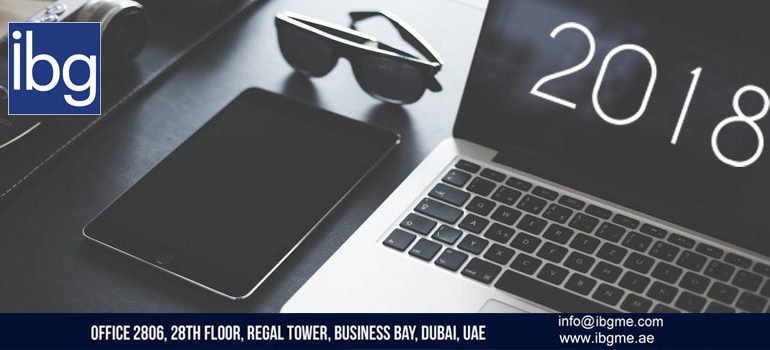

The International Monetary Fund (IMF) has forecasted UAE’s economic growth to nearly triple in 2018 as the economy picks up steam.
Over the years UAE has developed a diversified economic system independent of its oil resources, making its economy resilient to the influence of slumps in oil prices in the global market. Excellent infrastructure, sound business laws, political stability and ample foreign assets are among the main factors that make it a fail-proof system.
From 1.3 percent this year, the U.A.E.’s gross domestic product (GDP) will expand to 3.4 percent in 2018 as Abu Dhabi alone is expected to boost its GDP to 3.2% from 0.3% in 2017.
UAE Celebrates 46th National Day
On 2nd December 2017, UAE bade farewell to another year of its glorious union. The UAE national day is an annual occasion that commemorates the unification of the 7 Emirates in 1971 led by the country’s first President Sheikh Zayed bin Sultan Al Nahyan. Last week UAE celebrated the 46th National Day celebrated with zeal and fervor across the country.
The main event was organized in Abu Dhabi through a mix of army parades, decorative lights, fireworks, air shows and exhibitions.
As the year nears its end, the UAE has achieved great feats in economic, academic, urban and agricultural growth, answering every need of its citizens with greater output. To highlight the nation’s achievements, the UAE embassies and diplomatic missions held cultural and heritage events to reflect UAE’s 46 years’ progress and prosperity.
UAE’s Real GDP and Non-Oil GDP to Increase in 2018
Compared to 2016’s relatively underachieving non-oil growth of 2.7%, IMF has projected a major increase in domestic public investment and global trade for UAE in the year 2018. The non-oil growth will remain above 3 per cent and invite momentum to numerous real estate and business trade projects planned for the next year. Despite the introduction of VAT, no adverse impact is expected that will slow down the growth. Instead, the fiscal drag has eased after the introduction of VAT in February, where the consumer spending kept rising after the mid of 2017
Although the economic performance was subdued mostly during 2016, the economic growth is expected to pick pace as the oil sector recovers with more stable oil prices while the non-oil sector benefits from reopening of several infrastructure projects – including the preparation of the upcoming Dubai 2020 which will raise GDP by 2.9% in 2018.
Inflation in the UAE to remain stable in 2018
With the economy taking a rebound, UAE is finally starting to regain its economic footings in the region following 2015’s inflation high of around 4%. As a result of UAE’s economic turnaround in the third quarter of 2017, inflation is expected to shrink back significantly in 2018, decreasing commodity prices and declining rents levied on property. This will help the hospitality industry expand further by encouraging company setup in UAE through flexible office space leasing plans and decreased pricing on real estate, translating to a healthier CPI.
VAT to Be Introduced in UAE in 2018
However, the most important change in UAE’s financial structure will commence from January 1st, 2018 as Value Added Tax (VAT) makes its way into the economy. The Tax is set to fall in full effect from January 1st, 2018 in UAE. Taxable items include automobiles, electronics, jewelry, watches, Food & Beverage services, and entertainment services will be covered by VAT. The tax is a part of the government’s efforts to further diversify revenues and balance the offset from sharp decline in oil prices. This will significantly augment the fiscal proceeds of UAE and make room for better economic diversification.
